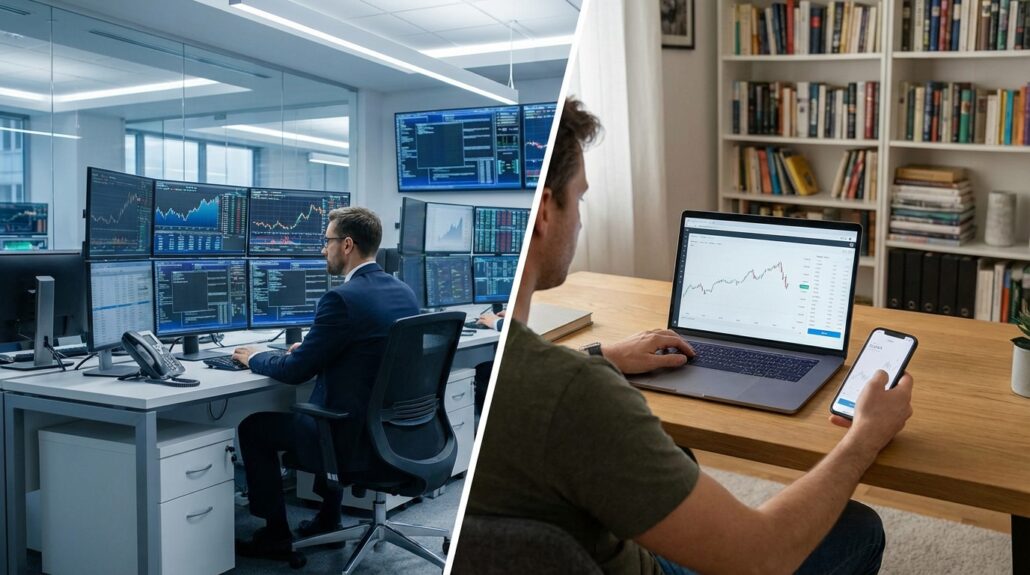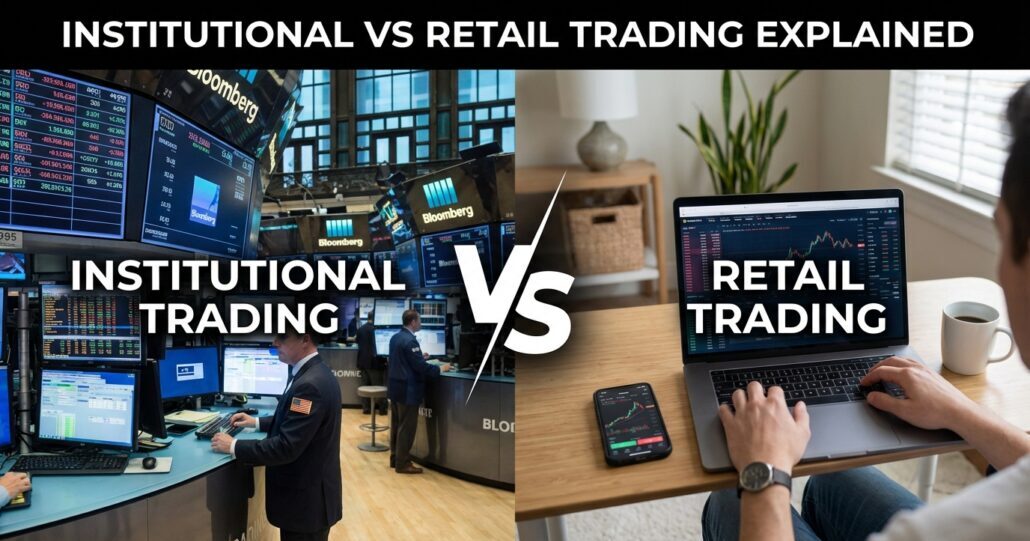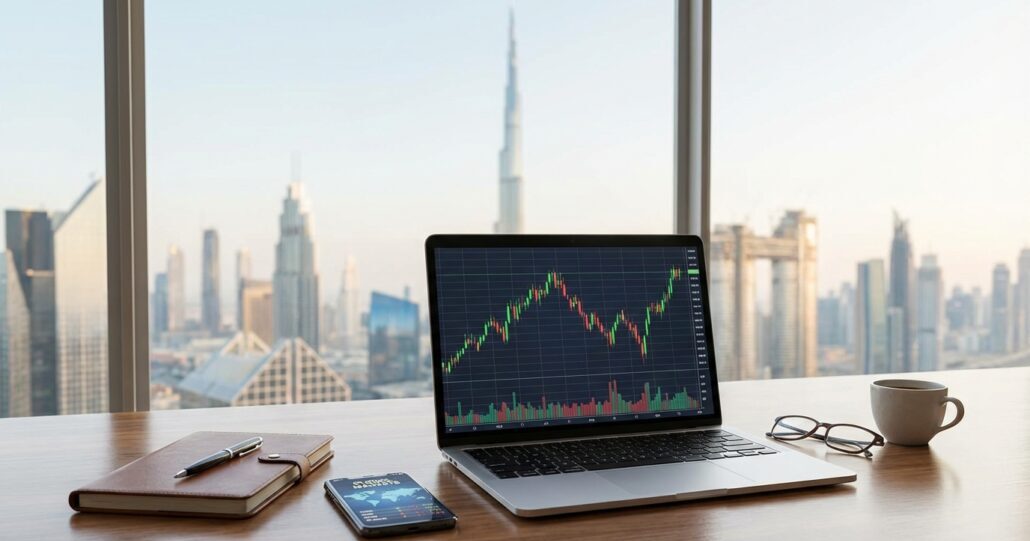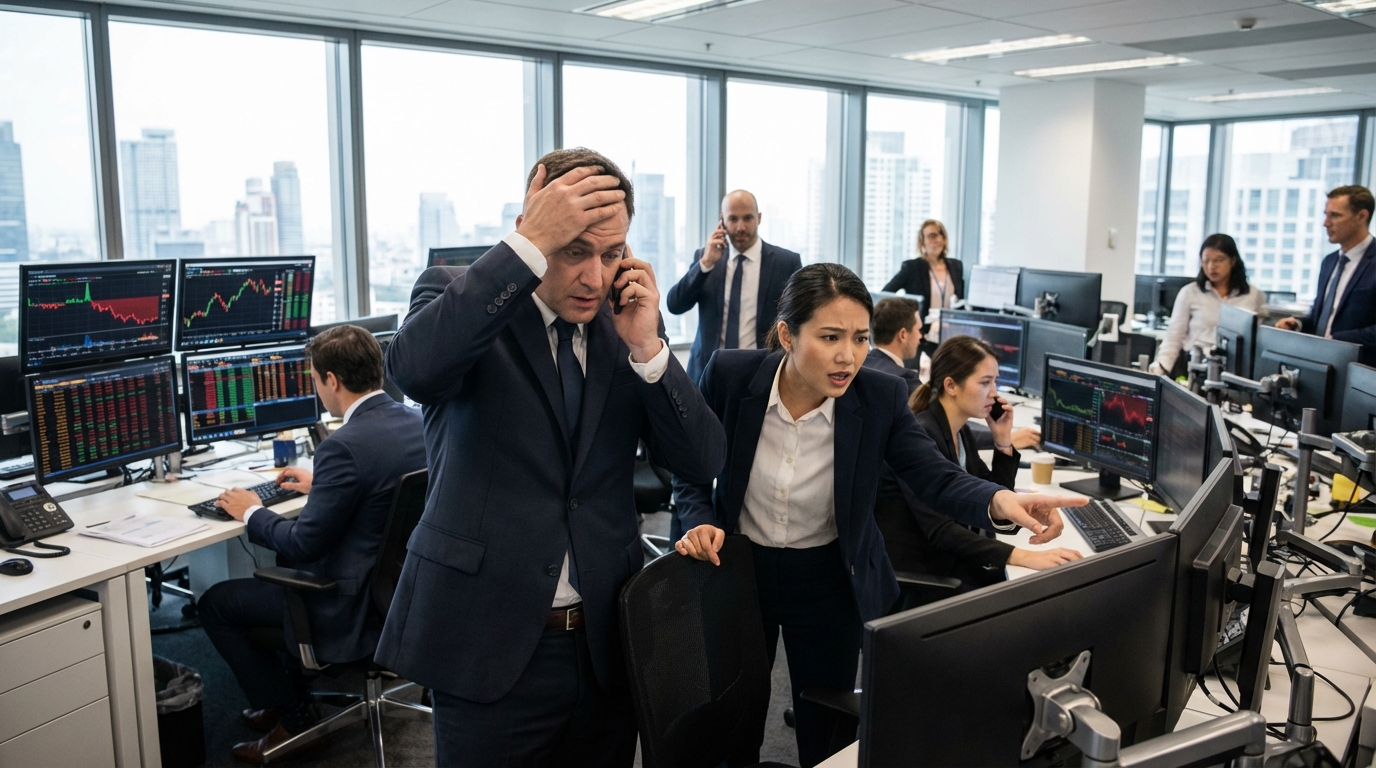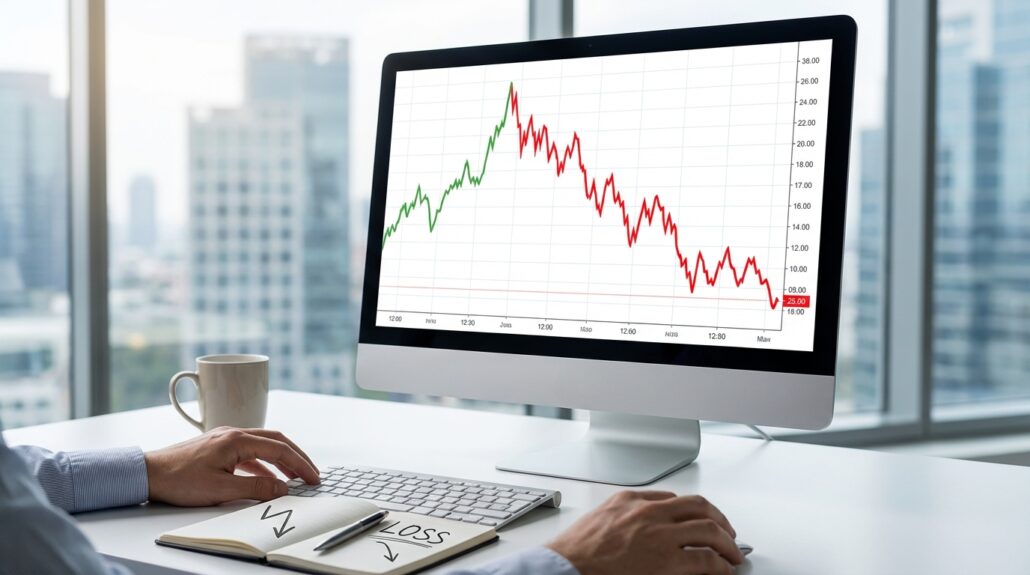Common Mistakes to Avoid When Choosing an Online Broker
 Sam Reid
Staff Writer
Sam Reid
Staff Writer 
Introduction
Online trading has become one of the most common ways for people to access financial markets. Platforms allow beginners to get started with only a small deposit, while experienced traders use advanced tools and deep liquidity to pursue opportunities. Along with convenience comes responsibility. Choosing the wrong broker or failing to understand how a platform works can lead to costly mistakes.
According to Fortune Business Insights, the global online trading platform market was valued at USD 10.15 billion in 2024, with the Middle East expanding steadily as more traders enter the space. Yet many make avoidable errors when selecting brokers. This article explains the most common mistakes traders face, practical steps to prevent them, and the importance of regulatory compliance including clarity on questions like whether is online trading legal in UAE.
What Is an Online Broker?
An online broker is a licensed intermediary that gives traders access to financial markets through digital platforms. These brokers charge fees, spreads, or commissions to facilitate trades in assets such as stocks, forex, commodities, and cryptocurrencies.
Beyond execution, the best brokers provide educational resources, trading tools, and secure client fund protection. Traders often ask which firm is the number 1 trading broker, but the answer depends on factors such as regulation, product variety, customer support, and personal goals.
Mistake 1: Not Doing Enough Research
Rushing into the first broker that appears in a search is a common misstep. Without careful research, traders risk opening accounts with platforms that do not align with their trading strategies.
How to Avoid It
- Compare brokers side by side using credible sources.
- Read reviews from verified traders rather than promotional content.
- Check independent ratings, but always double check claims.
Some brokers may advertise ultra low spreads but recoup costs with hidden fees. Others may highlight fast execution but limit access to asset classes you may want in the future. Research ensures your broker fits both current and long term needs.
Mistake 2: Choosing a Broker Without Regulatory Oversight
Unregulated brokers are among the riskiest choices. They may promise high leverage or quick profits, but without a regulatory body monitoring them, client funds are exposed to fraud or malpractice.
In the UAE, legitimate brokers are licensed by regulators such as:
- Securities and Commodities Authority (SCA)
- Dubai Financial Services Authority (DFSA)
- Abu Dhabi Global Market (ADGM)
Answering the common question: is online trading legal in UAE? Yes, it is legal, provided you use a broker regulated by one of these authorities. Trading with an unregulated firm whether regulated in the UAE or a highly reputed regulator recognized globally, however, can lead to account freezes or loss of funds with little legal recourse.
Mistake 3: Overlooking Asset Variety
Many traders start with stocks or ETFs and later want to diversify into forex, commodities, or cryptocurrencies. Brokers with limited offerings can restrict portfolio growth.
How to Avoid It
- Review the broker’s full list of tradable instruments.
- Consider whether you might expand into new asset classes in the future.
- Ensure the platform supports both short term and long term strategies.
Example: A beginner might only want to trade US stocks. Later, they may want access to Gulf equities, gold, or digital assets. Choosing a broker without this variety can force a costly switch later.
Mistake 4: Ignoring Account Types
Not all traders need the same type of account. While an individual trading account is standard, other account types might better suit long term goals.
- Retirement accounts may offer tax advantages in some jurisdictions.
- Joint accounts can help spouses or partners manage trading together.
- Custodial accounts allow parents to trade and invest for their children’s future.
In the UAE, brokers often provide swap free options for clients who want accounts that comply with Islamic finance principles. Ignoring account flexibility early can limit future trading plans.
Mistake 5: Neglecting Fees and Hidden Costs
Brokerage calculators help traders estimate costs, but they have limitations. Many new traders input incorrect data or forget to include taxes like VAT, stamp duties, or regulatory fees.
Key Considerations
- Look beyond headline commissions and spreads.
- Check for withdrawal fees, inactivity charges, or maintenance costs.
- Test the broker’s own calculator with realistic trade sizes.
Even small fees add up over time. A difference of 0.2 percent in trading costs can significantly impact account growth over years of active trading.
Mistake 6: Relying on Outdated Trading Technology
A broker’s trading platform is where decisions are executed, making it a critical factor. Outdated or glitchy platforms often cause order delays, pricing errors, or reduced access to analysis tools.
What to Look For
- Real time price data and seamless charting tools.
- Mobile app reliability for traders on the go.
- Access to fundamental research, technical indicators, and news feeds.
Without these, even skilled traders can face missed opportunities or losses.
Mistake 7: Ignoring Risk Management Features
Good brokers support traders with built in risk management tools such as stop loss, take profit, and margin alerts. Many beginners ignore these tools, leaving trades exposed to market swings.
The forex market alone records daily volumes of over $7.5 trillion (BIS data, 2023). With such volatility, trading without safeguards can wipe out accounts quickly. Brokers that lack these features expose their clients to greater risks.
Mistake 8: Overtrading and Emotional Decisions
Beginners often trade excessively in hopes of quick profits. Others act on fear during market dips, selling at the worst possible time. A quality broker offers features like demo accounts and educational resources to encourage patience and discipline.
Maintaining a trading journal and sticking to a clear strategy prevents overtrading. The right broker should support this discipline with tools that track performance and offer learning modules.
Mistake 9: Underestimating Customer Support
Customer support is often overlooked until something goes wrong. From login issues to urgent withdrawals, the difference between a 24/7 responsive team and delayed responses can be critical.
Questions like platform outages or suspicious account activity require fast solutions. Choosing a broker with multi channel support such as chat, phone, or email can save valuable time and stress.
Mistake 10: Falling for Unrealistic Promises
The online trading world is filled with scams advertising guaranteed profits. New traders may fall prey to these, especially when the promises seem easier than the hard work of learning.
Red Flags
- Promises of risk free profits.
- Lack of verifiable regulation.
- Pushy account managers offering bonuses for quick deposits.
Always verify a broker’s regulatory license directly with the issuing authority.
Additional Considerations for UAE Traders
- Regulation first: Only trade with brokers licensed by UAE authorities.
- Tax environment: While the UAE remains tax free on personal trading profits, always monitor changes in tax policies.
- Regional payment methods: Many UAE brokers now support local friendly deposit options like Mada cards or bank transfers.
FAQs
What to consider when choosing a brokerage?
Look at regulation, asset variety, account types, fee structure, platform technology, and customer support. These factors together ensure a safe and effective trading experience.
How to know which broker to choose?
Select one that aligns with your trading style and goals. Beginners may want easy to use platforms with educational resources, while advanced traders often prioritize asset variety and advanced charting tools.
What is the biggest mistake in trading?
The biggest mistake is trading without a plan and relying on unregulated brokers. This exposes traders to unnecessary risks and potential fraud.
How do you check if a broker is safe?
Verify their license with official regulators such as SCA, DFSA, or ADGM in the UAE. You can check regulator websites for lists of approved firms. Safe brokers also provide transparent fee structures and segregated client fund protections.
Conclusion
The growth of online trading has opened up opportunities for millions of traders worldwide, including in the UAE. With opportunity comes responsibility. By avoiding the mistakes outlined above from neglecting research and fees to trading with unregulated brokers traders can set themselves up for greater success.
Choosing the right broker is not about chasing the number 1 trading broker. It is about selecting the platform that best fits your needs, protects your capital, and provides the tools to help you grow. With patience, proper research, and careful attention to regulations, traders can avoid costly missteps and build a more secure financial future.
Disclaimer: Remember that forex and CFD trading involves high risk. Always do your own research and never invest what you cannot afford to lose.
 31st Aug 2025
31st Aug 2025


